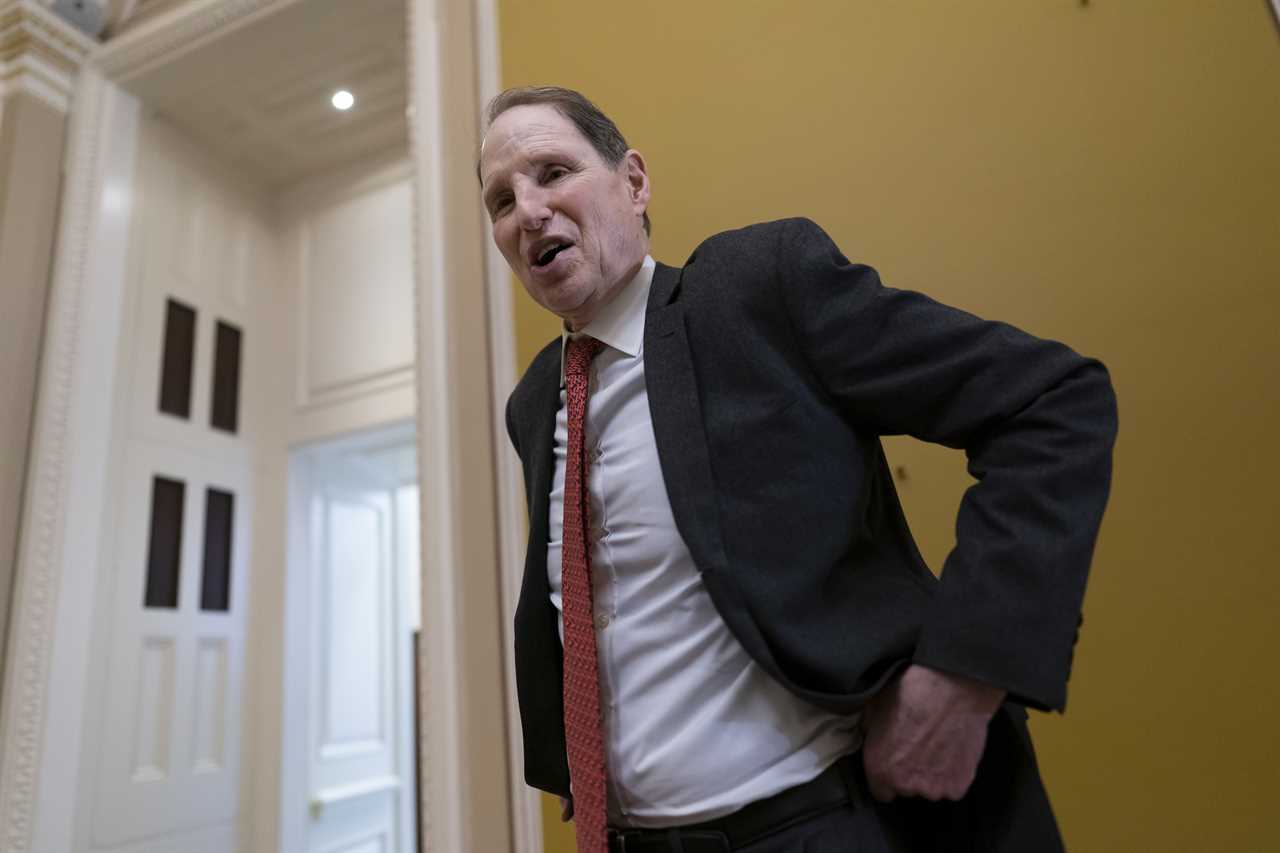
The chief tax writers in Congress have reached a long-awaited deal that would temporarily expand the Child Tax Credit, an office involved in the negotiations said.
The roughly $80 billion package set to be unveiled Tuesday would also undo restrictions on a trio of popular business tax breaks, as well as beef up subsidies for affordable housing and disaster assistance.
In a bid to allay colleagues’ concerns about the hit to the government’s budget deficit, the plan would be paid for by cracking down on the troubled Employee Retention Credit created during the pandemic to combat layoffs.
It also includes provisions giving Taiwanese semiconductor companies operating in the U.S. relief from tax problems created by the lack of a tax treaty between the two countries.
The question now will turn to how Senate Finance Committee Chair Ron Wyden (D-Ore.) and House Ways and Means Committee Chair Jason Smith (R-Mo.) intend to shepherd the plan to passage — a nagging issue that has hung over their negotiations on the package.
Lawmakers could potentially attach it to must-pass budget legislation needed to fund federal agencies, though they may find themselves between competing deadlines.
There’s not enough time nor inclination among party leaders to piggyback the plan on a continuing resolution needed to keep departments operating beyond Jan. 19. But it may be too long to wait for longer-term budget legislation likely to be needed in March.
Eager to get the package into law before tax-filing season begins Jan. 29, lawmakers have been eyeing the possibility of passing it as a standalone measure — something that is relatively rare for a tax bill.
House Republicans have raised the idea of passing it there via the suspension calendar, a way to speed legislation through the chamber that is usually reserved for noncontroversial legislation. That comes with a higher vote threshold for passage, but many believe the tax plan would clear that hurdle.
The bigger question is what happens in the Senate because taking that legislative route means the bill could end up being subject to floor amendments by rank-and-file senators — something many supporters are eager to avoid because it could lead to the package being rewritten on the chamber floor.
Regardless, the agreement represents a high-water mark in Democrats’ long-running quest to expand the child credit.
Democrats have been searching for a way to revisit the issue since 2021, when they controlled the entire government but couldn’t convince Sen. Joe Manchin (D-W.Va.) to continue the supersized break they temporarily put on the books during the pandemic.
Democrats later took the business breaks hostage, refusing to undo the restrictions on research, capital and interest expense deductions that Republicans used to help pay for their 2017 tax cuts — which few thought would ever actually take effect — until they agreed to boost the child credit.
Republicans initially balked, arguing they shouldn’t have to trade business provisions both parties supported for what they saw as a partisan bid on the child credit. To the surprise of many, the standoff lasted more than a year.
But complaints from the business community wore on lawmakers, and Democrats were aided by the fact that Smith, representing a low-income district in Missouri, is a bigger fan of the child credit than many of his colleagues.
The package would be a significant victory for Democrats on the ballot this year, including President Joe Biden and lawmakers like Sen. Sherrod Brown (D-Ohio), a longtime advocate for the credit who is fighting for reelection in a closely watched race.
Some progressives have complained the child credit changes are far too modest, but most Democrats will surely support them, figuring they are better than nothing.
Costing roughly $35 billion over three years, they would largely benefit lower-income people by boosting the “refundable” share of the credit that people can claim even if that exceeds their tax bills.
The legislation would also reverse tougher rules regarding when businesses can claim interest, capital and research related deductions, although not for foreign R&D expenses.
There are also breaks for small business write-offs, an expansion of the Low-Income Housing Tax Credit, legislation previously approved by Ways and Means expanding disaster-related breaks, and a provision raising a tax-reporting threshold for businesses using subcontracted labor.
----------------------------------------
By: Brian Faler and Benjamin Guggenheim
Title: Tax chiefs reach deal on child credit, business breaks
Sourced From: www.politico.com/news/2024/01/16/tax-chiefs-reach-deal-on-child-credit-business-breaks-00135631
Published Date: Tue, 16 Jan 2024 05:00:00 EST
Did you miss our previous article...
https://consumernewsnetwork.com/politics-us/a-large-chinese-delegation-unsettles-us-diplomats-at-davos






